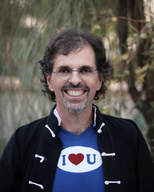 Being and doing. Both are essential parts of human psychology. Somehow, the relationship between the two has fallen out of balance. We are living in a world where doing is valued far more than being. From an early age, each of us is encouraged to accomplish and achieve. Our society tends to define success far more in terms of power and wealth than love and joy. Even though most of us claim, when surveyed by researchers, that family and relationships are the highest priority in our lives, our behavior reveals otherwise. We tend to pursue our careers and businesses, often at the expense of our personal lives. The language we use reflects this priority. Few labels are more damaging than “lazy” or “slacker.” We refer to our leisure and recreational activities as “fun,” a word that originates in the Middle English fon, meaning “fool.” This is not just a bias of the English language. The French equivalent, “amusement,” comes from the word, muser, meaning “to stare stupidly.” And in Spanish, fun is “divertido,” which comes from the same root as the English word divert. To have fun, then, is to turn away from forward progress. Taking time away from our busy lives to enjoy the moment is considered unwise and unproductive. The message is simple: Do more. Work harder. Never let up. We are living with a work ethic that permeates our culture so thoroughly that even the slightest pause is seen as irresponsible. A dear friend of mine tried to challenge this work ethic. In his 20’s and 30’s, he used to say that his career goal was “not to let my work cut into my leisure time.” By age 45, he was running a business and working 12-hour days. Three research findings came out this week suggesting that this emphasis on doing over being does not seem to be working. We learned that: 1) the Earth’s temperature is expected to rise two degrees Celsius by the end of the century, making the planet virtually uninhabitable; 2) men’s sperm count has dropped by 59% in the past 40 years; and 3) chronic fatigue is a function of inflammation. All of these findings point to the damaging effects of relentless human activity. As a society, we are unwilling to disengage from a fast-paced lifestyle that is destroying the Earth, bringing our species to the verge of extinction, and creating runaway inflammation in our bodies through environmental toxicity, psychological stress, an unhealthy diet, and sleep deprivation. There is a simple solution. We can follow the lead of those free spirits who value the experience of being fully alive. Sometimes, we need to take a pause to immerse ourselves in the moment, take it all in, relax and enjoy. Thinking more and working harder have their place, but they are not always the answer. A shift is beginning to happen, not by choice but by necessity. We are at the outset of a “being” revolution. People are starting to disengage from a society that is driving itself to death through an overemphasis on doing more as opposed to being more. According to a report in Forbes magazine, the millennial generation seems to be choosing experiences over possessions or career status. We are seeing more young people dropping out of school, rejecting conventional jobs, and becoming “cage-free” rather than taking on the responsibilities of home ownership. This movement needs a new vision of human nature—what Abraham Maslow called a “psychology of being.” I am honored and thrilled to be exploring this vision with you. And I am eager to hear your thoughts. What does the “being” revolution mean to you? How is it impacting your life? Where do we go from here? Please share your impressions in the Comments section of this blog. Or just take some time to appreciate the beauty and wonder of this precious moment!
0 Comments
Leave a Reply. |
I want to hear from you! Please share your questions and comments. And sign up for my newsletter, where I will pass along the insights, ideas, and inspiration that come my way.
Contact me:Archives
November 2023
|

 RSS Feed
RSS Feed
